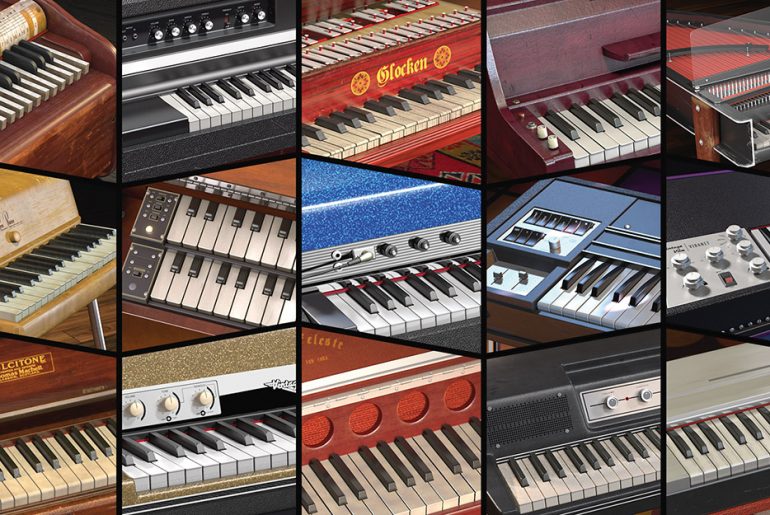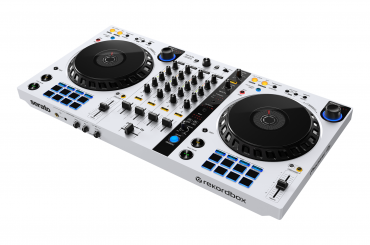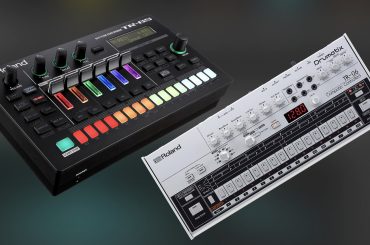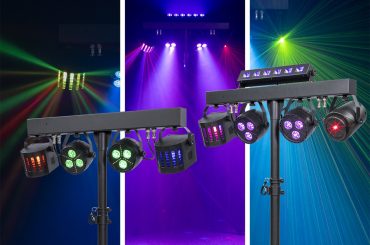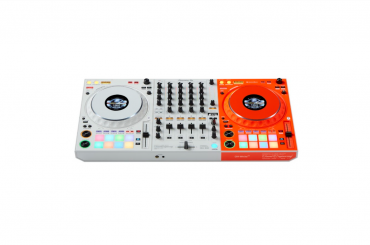Every couple of years or so, Spectrasonics comes out with a new virtual instrument that I know I must have. Keyscape is the Burbank, Calif.-based company’s most recent offering, and it features the largest collection of collector keyboards in the world.
It was 10 years in the making, and if there is one thing I have always appreciated about Eric Persing and the the Spectrasonics family, it’s how meticulously multi-sampled and organized their libraries are. Keyscape’s content weighs in at 77GB, so I knew I was in for a treat. There is also an alternate install, which is 30GB, and has a pared-down collection of keyboards.
As a classically trained pianist and longtime synth lover and owner, I couldn’t wait to dive into this collection. My spotty internet at my studio made the download take longer than necessary, but in the end, it was worth the extra wait. (Of course, the boxed version that’s sold through retail dealers offers two USB drives for easier installation.) For me, this collection is all about authentic expression and custom control of the instruments.
In total, there are 36 different instrument models, yielding over 500 presets. The instruments range from an LA Custom C7 Grand to a Wurlitzer 140B. Other instruments include the Roland MKS-20, 1972 Fender Rhodes, Dolceola, Clavichord and Harmochord.
And, to add icing on the cake, some hybrid/duo patches are included. For example, ever wondered what an MKS EP and LA Custom C7 sound like together? With Keyscape, you have your answer.
There are two different ways to use Keyscape: as a stand-alone plug-in or within Omnisphere—however, you will need to update to Omnisphere 2.3. Using Keyscape within Omnisphere is fantastic—users can take advantage of Omnisphere’s Live and Stack Modes, as well as its expansive effects. It’s definitely worth exploring.
Also worth mentioning is the fact that Keyscape needs a 64-bit host, but its sounds can be played within Omnisphere 2, which can operate in 32-bit hosts.
Having played the hardware versions of many of these keyboards, I have to say that this library is incredible. I own a Roland JD-800 and the Crystal Rhodes patch is spot-on. One of my favorite classic keyboards is the Yamaha CP-70, and I am so happy to have it in my collection now. There is something about that keyboard that inspires me. I really enjoy the different presets that were created for the Custom C7.
There are some cinematic piano presets that have so much depth. I happened to be working on a deep-house track during my first week with Keyscape, and I quickly found my way to the Suitcase Rhodes, put down my part and blended it in my track. After working my way through the entire library, I have to say that one of my favorite keyboards is the Rhodes Piano Bass. It’s got such a full and rich sound.
In terms of custom controls, each patch was created with specific performance controls. For example, some patches allow for control of the key’s release noise, and some allow for the patch’s sonic character to be changed from dark to bright. Some patches allow for control over reverb and compression. It varies from patch to patch.
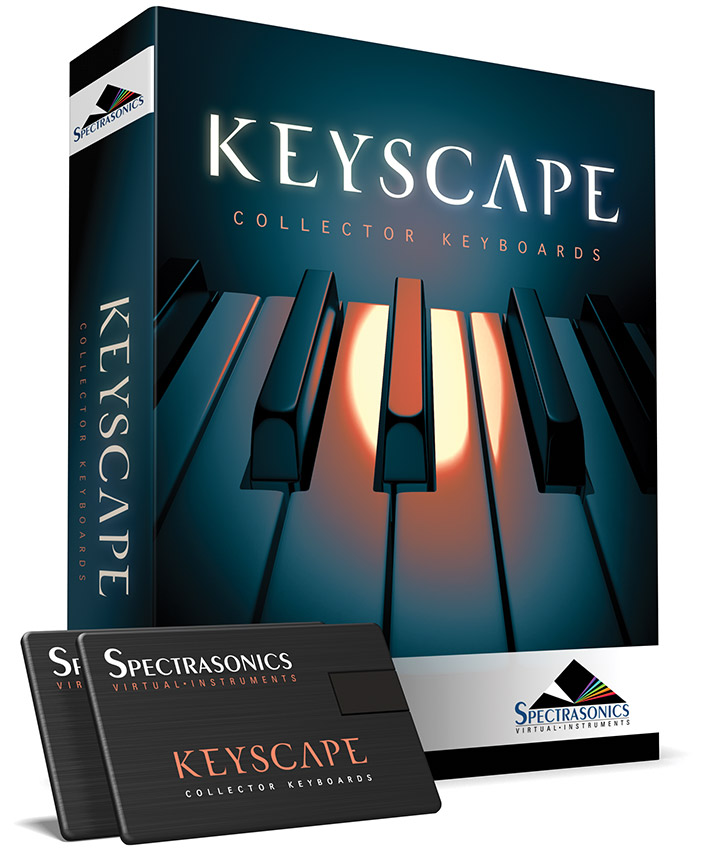
At the time of writing this review, new velocity curve presets were being created, so depending on what controller you’re using, you will have options to select the curve that best suits your playing style, and your controller’s touch response. [Editor’s Note: According to Spectrasonics, the latest version of the patch library has curves for over 50 controllers.] Another goal with this collection is to allow for “live” use onstage. Imagine being able to have all of these keyboards on stage in a laptop?
Those of you who are working on tracks that call for piano and vintage keys will truly love Keyscape. I can see it finding a home with TV and film composers, as well as with pop, R&B and gospel keyboardists. In the dance-music world, I can see soulful and deep-house producers getting a lot of mileage out of it.
For $399, you’re getting well over 100K worth of collector’s keyboards in a plug-in. For a little perspective, consider that I paid $900 for my JD-800 back in 1998—and it was used! So, bottom line: Spectrasonics has done wonderful job with this collection. Check it out!
If you have any questions for Josh Harris or Making Tracks, please send them to djtimes@testa.com.


